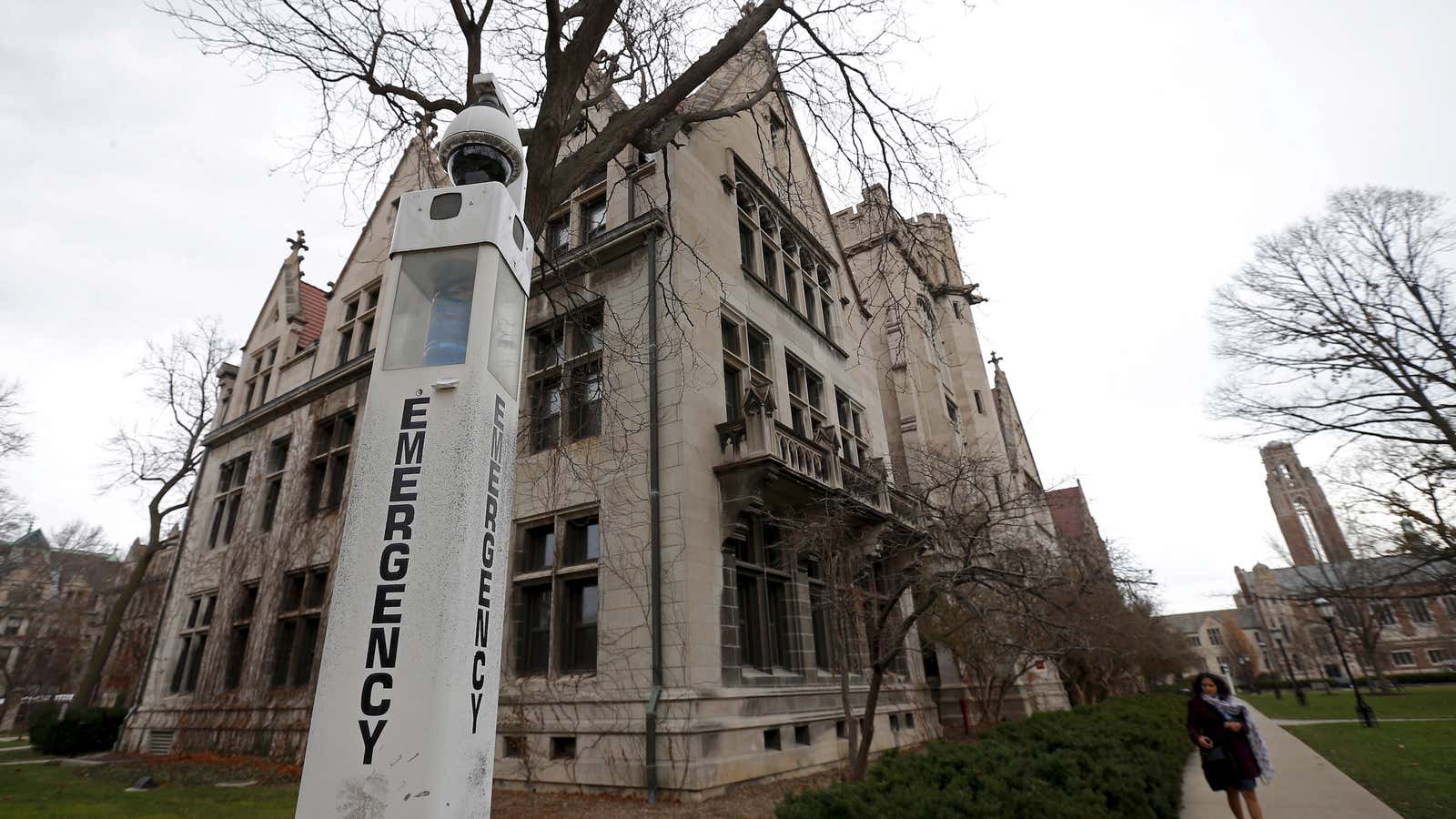As the majority of American universities take a vague, middling approach to the intensifying national debate over campus political correctness, one school is opting to be utterly blunt—and uncompromising.
In preparation for the new fall semester, the University of Chicago has sent all incoming students a letter declaring its disapproval of anything that shields people from social discomfort. Chicago’s dean of students John Ellison wrote to the class of 2020:
We do not support so-called ‘trigger warnings,’ we do not cancel invited speakers because their topics might prove controversial, and we do not condone the creation of intellectual ‘safe spaces’ where individuals can retreat from ideas and perspectives at odds with our own.
The comments allude to several instances in the past year—such as Williams College’s rescinded speaker invitation to a mathematician who wrote a racist blog post—in which US colleges have shied away from provocation.
The term “safe space” itself has become confusingly nebulous: while it originally indicated an educational institution that doesn’t condone harassment or hate speech, it’s now used to describe anything from a tolerant intellectual setting to a space in which people are not allowed to say anything that may cause offense at all. (Ohio State University even subverted the idea by claiming a group of sit-in student protesters this year was not giving the school’s workers their “safe space.”)
“Trigger warning,” too, has become a term so prominent and controversy-tagged that it’s been been added as an official dictionary entry, though that doesn’t mean there’s any agreement over the attitude schools should take toward them.
Chicago’s stance is a contrast from that of many other schools, even ones in close physical proximity such as Northwestern University, which made a point to defend the concept of “safe spaces” earlier this year.
